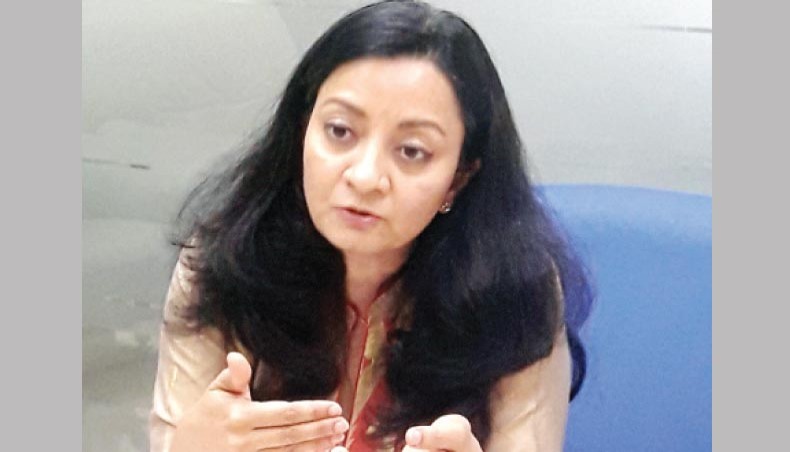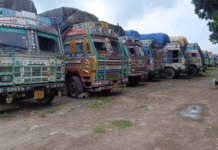International Finance Corporation has decided to invest in start-ups in Bangladesh with a view to encouraging innovative ideas.
Its regional lead, South Asia-venture capital, Ruchira Shukla on Wednesday told New Age in an interview that she had been visiting the country periodically to keep tabs on ‘the new innovations coming in to market’ and ‘the start-ups’ that were being created.
‘We are looking for the right investing businesses and looking very aggressively and enthusiastically,’ said Ruchira during the interview at IFC’s Gulshan office.
The IFC, an associate of the World Bank Group, which usually invests in later stage businesses, started investing in earlier stage businesses about five years ago.
‘Because all the new ideas get tested by start-ups, people experiment new business model and solve more complex problems,’ explained Ruchira.
‘There is enormous potential for start-ups to make a difference in this (country’s) economy,’ she added.
The IFC finds the country a potential investment place due to its growing internet connectivity.
The IFC aims at training tech talents, providing them with money and sharing with them its experiences of investing in start-ups that have seen successes in other economies.
The IFC will accept business proposals from entrepreneurs who have already launched their businesses, but were struggling to make profits for lack of capitals.
The IFC will also try to find out potential entrepreneurs on its own.
Although it is considered risky to invest in start-ups, the IFC said it was ready to invest any amount depending on the business potential.
The IFC will continue investing for five to seven years as the business grows before eventually exiting from it.
‘We will invest what it takes to make the business successful,’ said Ruchira, citing examples of successful business models in India.
The IFC invested in seven start-ups in a year in India. One of those was a business idea developed on the people’s lack of access to quality education.
The idea was getting video lesson on entire curriculum studied between grades II and XII in SD cards and selling the cards to areas lacking in quality education.
People in over five hundred cities in India subscribed to the cards soon after it was introduced in October last year. Eight months later, the customer base is spread across 1,500 cities.
Bangladesh should see the surge in economic growth that start-ups have created in India, said Ruchira.
Start-ups are also creating a lot of jobs in India.
IFC country manager Wendy Werner said her organisation also decided to invest in businesses that needed help in facing challenges from climate change.
The IFC will invest $10 million in this sector.
Its regional lead, South Asia-venture capital, Ruchira Shukla on Wednesday told New Age in an interview that she had been visiting the country periodically to keep tabs on ‘the new innovations coming in to market’ and ‘the start-ups’ that were being created.
‘We are looking for the right investing businesses and looking very aggressively and enthusiastically,’ said Ruchira during the interview at IFC’s Gulshan office.
The IFC, an associate of the World Bank Group, which usually invests in later stage businesses, started investing in earlier stage businesses about five years ago.
‘Because all the new ideas get tested by start-ups, people experiment new business model and solve more complex problems,’ explained Ruchira.
‘There is enormous potential for start-ups to make a difference in this (country’s) economy,’ she added.
The IFC finds the country a potential investment place due to its growing internet connectivity.
The IFC aims at training tech talents, providing them with money and sharing with them its experiences of investing in start-ups that have seen successes in other economies.
The IFC will accept business proposals from entrepreneurs who have already launched their businesses, but were struggling to make profits for lack of capitals.
The IFC will also try to find out potential entrepreneurs on its own.
Although it is considered risky to invest in start-ups, the IFC said it was ready to invest any amount depending on the business potential.
The IFC will continue investing for five to seven years as the business grows before eventually exiting from it.
‘We will invest what it takes to make the business successful,’ said Ruchira, citing examples of successful business models in India.
The IFC invested in seven start-ups in a year in India. One of those was a business idea developed on the people’s lack of access to quality education.
The idea was getting video lesson on entire curriculum studied between grades II and XII in SD cards and selling the cards to areas lacking in quality education.
People in over five hundred cities in India subscribed to the cards soon after it was introduced in October last year. Eight months later, the customer base is spread across 1,500 cities.
Bangladesh should see the surge in economic growth that start-ups have created in India, said Ruchira.
Start-ups are also creating a lot of jobs in India.
IFC country manager Wendy Werner said her organisation also decided to invest in businesses that needed help in facing challenges from climate change.
The IFC will invest $10 million in this sector.
Source: New Age










